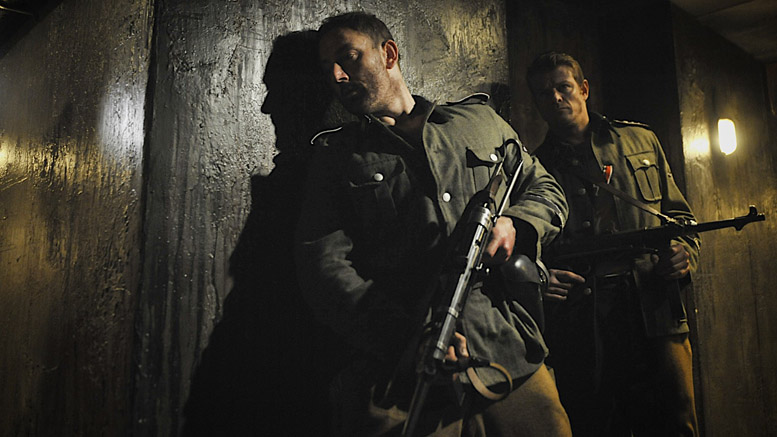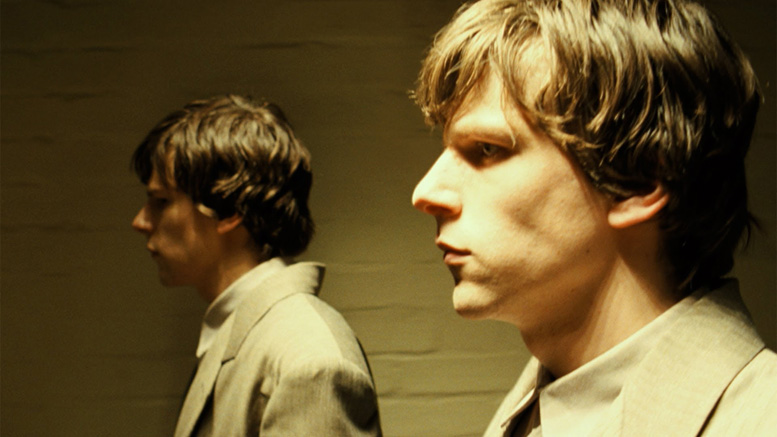
Another in the ‘tower block terror’ sub-strand of films which has bloomed over the last few years (see also Tower Block, The Raid, Attack on the Block), an off-shoot of the ‘hoodie horror’ movies which seem primarily composed to work writers for The Guardian up into a state of apoplexy. That’s despite the fact that they effectively tap into possibly the most understandable of modern fears: the likelihood of having the crap beaten out of you in the well-tended English countryside is low, but walk through most town centres on a Saturday night and the potential for violence is tangible.
This one features Aneurin Barnard (from Ironclad) as a young man who is left holding a baby and nursing a serious case of agoraphobia when his wife is attacked and killed by a gang of unseen teenagers. Re-housed in the shadow of the very same tower block where the murder happened, his recovery is further hindered by the fact that the damnable kids seem to be targeting him; or, rather, targeting his daughter. The lay siege to his home at night, pursue him though the ill-lit streets and hang out in mass near the infrequently serviced bus stops which are the only way out of the estate. But who or what are they? The unfortunate products of a damaged society, as the local social worker (Wunmi Mosaku) believes? Or some kind of supernatural demons, as is suggested by a nutty priest (James Cosmo)?
This is really a very good little movie: the performances are effective and first time director Ciaran Foy handles the material extremely well, bathing the run down locations in a suitably creepy atmosphere (this isn’t quite the most sinister housing estate I’ve seen on film recently, that honour goes to Community, but it certainly runs it close). The protagonist is more interesting and well constructed than usual, and it has interesting things to say on the after-effects of random violence as well as the links between the environment and gang culture. Most poignantly, it taps into the fear that most parents have that despite their best efforts their children could easily be led astray by the people and the places around them. There’s more going on here, in other words, than appears on the surface, and the criritcs who accused it of, for instance, ‘a reactionary tone’ (The Guardian, inevitably), have rather predictably missed the point.

